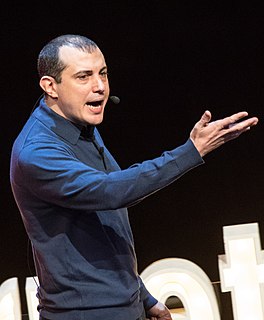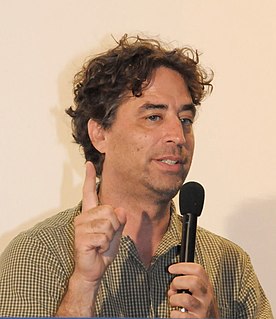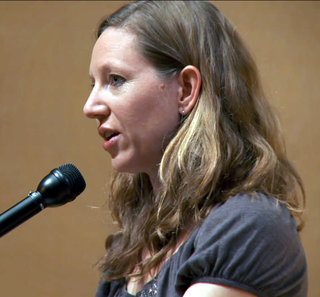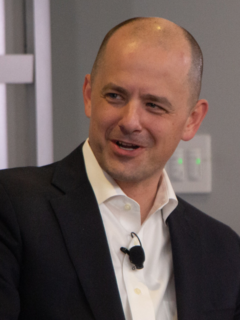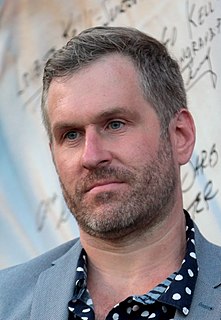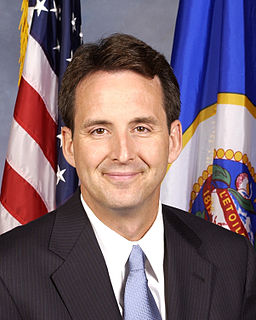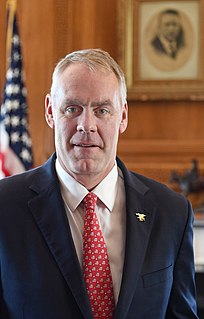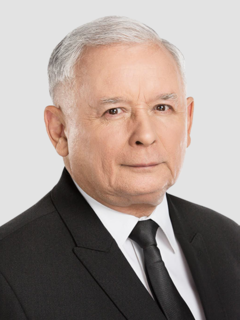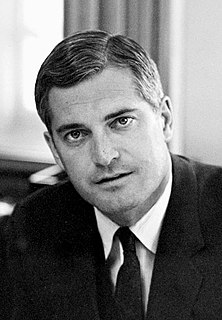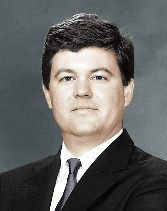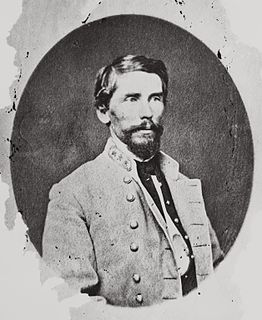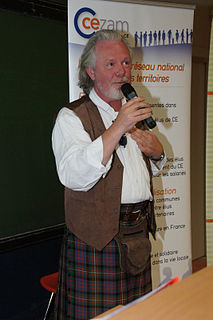Top 120 Centralized Quotes & Sayings - Page 2
Explore popular Centralized quotes.
Last updated on April 19, 2025.
The decentralized nature of online conversations often makes it easier to manipulate public opinion, both domestically and globally. Regimes that once relied on centralized systems of media control can now deliver ideological messages more subtly, with the help of little-known intermediaries like anonymous commenters on websites.
Does the U.S. Constitution stand for anything in an era of government excess? Can that founding document, which is supposed to restrain the power and reach of a centralized federal government, slow down the juggernaut of czars, health insurance overhaul and anything else this administration and Congress wish to do that is not in the Constitution?
To centralize power in the name of freedom is akin to putting a crime syndicate in charge of rooting out corruption. It is the normal state of politics that the more centralized it is, the more damage it does. Fast-track authority [for government-to-government trade agreements] centralizes power and is therefore part of the problem.
Anarchists believe that we can govern ourselves in the absence of coercive and centralized authority; the underlying premise about human nature (to use an infinitely problematized but necessary term here) is fundamentally positive. And the evidence that in disasters people are really pretty kind, generous, brave, resourceful and creative fed that.
The economic miracle that has been the United States was not produced by socialized enterprises, by government-unon-industry cartels or by centralized economic planning. It was produced by private enterprises in a profit-and-loss system. And losses were at least as important in weeding out failures, as profits in fostering successes. Let government succor failures, and we shall be headed for stagnation and decline.
Government is not infallible. Government is only an executive control, a centralized authority for the purpose of expressing the will of the people; before you have a government you must have the people. Without the people there can be no government. The government must be, therefore, an expression of the will of the people.
Our Founding Fathers never meant for Washington, D.C. to be the fount of all wisdom. As a matter of fact they were very much afraid if that because they'd just had this experience with this far-away government that had centralized thought process and planning and what have you, and then it was actually the reason that we fought the revolution in the 16th century was to get away from that kind of onerous crown if you will.
I remain convinced that for Stalin to have complete centralized power in his hands, he found it necessary to physically destroy the second-largest Soviet republic, meaning the annihilation of the Ukrainian peasantry, Ukrainian intelligentsia, Ukrainian language, and history as understood by the people; to do away with Ukraine and things Ukrainian as such. The calculation was very simple, very primitive: no people, therefore, no separate country, and thus no problem. Such a policy is Genocide in the classic sense of the word.
I still believe that, in the long run, the aggregate of the decisions of individual businessmen, exercising individual judgment in a free economy, even if often mistaken, is likely to do less harm than the centralized decisions of a Government; and certainly the harm is likely to be counteracted faster. As I said earlier in this debate, our economic medicine may be painful but it is fast and powerful because it can act freely.
You are human, whether your ancestors come from Europe, Asia, Africa, or wherever, shamanism once existed there. We are just attempting to go home to our spiritual roots before the state religions, the agrarian centralized religions rose up with autocratic government and said, 'This is what you're going to believe, these are the official revelations, take it from us, you can trust us, we got it.'
Not to be too doctrinaire, but we live in the patriarchy! And therefore anything explicitly associated with the female gender, including motherhood, needs to be defensively claimed, because it's either devalued or sentimentally idealized, but not supported. I so thoroughly believe that female human beings have worth that I don't feel the need to argue it, but I think that there's a part of me that very specifically wants to make space for those ideas to be centralized, if only for the moment.
The revolution here is from hierarchical to lateral power. That's the power shift. So increasingly a younger generation that's grown up on the internet and now increasingly distributing renewable energies, they're measuring politics in terms of a struggle between centralized, hierarchical, top-down and closed and proprietary, versus distributed, open, collaborative, transparent. This shift, from hierarchical to lateral power, is going to change the way we live, the way we educate our children, and the way we govern the world.
We have throughout our history been tested when it comes to the institutions of our democracy. And thank God our forefathers were smart enough to establish a government of checks and balances to make sure that power cannot be centralized in any one branch of government. And those institutions have proven themselves.
The economy - once a great scatter of small productive units in autonomous balance, has become dominated by two or three hundred giant corporations, administratively and politically interrelated... The political order, once a decentralized set of several dozen states with a weak spinal cord, has become a centralized executive establishment which has taken up into itself many powers previously scattered... The military order, once a slim establishment in a context of distrust fed by state militia, has become the largest and most expensive feature of government.
Natural gas will displace coal in power generation. Getting natural gas into the transportation fleet is harder. It works best for vehicles that work from centralized fueling facilities like trucking fleets or buses and cabs. That is happening. Before it can make big inroads beyond that, infrastructure is going to need to be developed.
Radicals, on the other hand, want to advance from the jungle of laissez-faire capitalism to a world worthy of the name of human civilization. They hope for a future where the means of economic production will be owned by all of the people instead of just a comparative handful. They feel that this minority control of production facilities is injurious to the large masses of people not only because of economic monopolies but because the political power inherent in this form of centralized economy does not augur for an ever expanding democratic way of life.
The Sunnis no longer recognize the centralized government as a legitimate power. The Shia militia that is moving around is calling out war crimes that are anti-Sunni. So, the Sunnis are in a tough spot. Do they move to an ISIS, which is a radical Islamic terrorist organization? Or do they defend themselves? Or do they give up?
The EU treaties clearly promote an alliance of national states that, as far as possible, maintain their own responsibilities. There is no mention of a centralized state of Europe in the treaties. The EU Commission's politicking, however, is proof of a certain allergy against this principle of national states and national responsibilities.
f you analyze it I believe the very heart and soul of conservatism is libertarianism. I think conservatism is really a misnomer just as liberalism is a misnomer for the liberals - if we were back in the days of the Revolution, so-called conservatives today would be the Liberals and the liberals would be the Tories. The basis of conservatism is a desire for less government interference or less centralized authority or more individual freedom and this is a pretty general description also of what libertarianism is.
Empires are synonymous with centralized if occasionally schismatized hierarchical power structures in which influence is restricted to an economically privileged class retaining its advantages through usually a judicious use of oppression and skilled manipulation of both the society's information dissemination systems and its lesser as a rule nominally independent power systems. In short, it's all about dominance.
The most common objection to changes in public policy which would increase a user's control of housing at the expense of centralized institutions is that standards would be lowered as a result. The standards the objectors have in mind, however, are not something that cam be achieved with available resources, but, rather, represent the objector's own notion of what housing ought to be.
In an echo of earlier times, the climate change prophets have in recent years tried to silence counter views and suppress dissent. August members of the Royal Society, a body once noted for its cultivation of debate in science, are now leaders of the 'science is settled' camp: the only debate they consider to be legitimate is about choice among the different forms of the centralized action they believe is required to deal with the problems they foresee.
The average mind is slow in grasping a truth, but when the most thoroughly organized, centralized institution, maintained at an excessive national expense, has proven a complete social failure, the dullest must begin to question its right to exist. The time is past when we can be content with our social fabric merely because it is "ordained by divine right," or by the majesty of the law.
The new puritans have been highly successful. All of the preconditions for new prohibitions on alcohol and tobacco are in place. ... Indeed, the future agenda of the federal government has already been established to outlaw alcohol and tobacco in the near future. ... If current trends persist, America will be moving toward stricter prohibitions, greater restrictions, and more centralized control over consumption. This represents an erosion of liberty at its most fundamental level.
Procrustes in modern dress, the nuclear scientist will prepare the bed on which mankind must lie; and if mankind doesn’t fit—well, that will be just too bad for mankind. There will have to be some stretching and a bit of amputation—the same sort of stretching and amputations as have been going on ever since applied science really got going into its stride, only this time they will be a good deal more drastic than in the past. These far from painless operations will be directed by highly centralized totalitarian governments.
I had a checklist in my mind of the things that make a biography practical. Is the source material centralized? Is it easy to find? Are there new primary sources that no one has ever had access to? Are all the sources in English? If they're not, are they in a language that you speak? And I realized that not only is Armstrong the most important figure of Jazz in the 20th Century, but he's a perfect subject for a biography for all of these reasons. I had always loved his music and I had been fascinated in him as a personality. And that's really the key to writing a biography.
Government-to-government foreign aid promotes statism, centralized planning, socialism, dependence, pauperization, inefficiency, and waste. It prolongs the poverty it is designed to cure. Voluntary private investment in private enterprise, on the other hand, promotes capitalism, production, independence, and self-reliance.
What happened to the Soviet Union happened mainly for domestic reasons. It was a failure of the model based on a command economy and dictatorship. The rejection of freedom and democracy, the decisionmaking monopoly of one party, and the monopoly of one ideology all had a chilling effect on the country. That model turned out to be incapable of making structural changes. It did not open up ways for initiative and was overly centralized.
Essentially Rumsfeld wins, Cheney wins, and the CIA and State Department lose. Bush, Cheney, and Rumsfeld have more centralized control over intelligence, analysis, and operations than ever before. And the way they interpret the law, if the President authorizes an intelligence mission to be run covertly by the Pentagon, they don't have to tell anybody, including Congress, about it because the President is the commander in chief.
Try this thought experiment. Pretend you're a tyrant. Among your many liberty-destroying objectives are extermination of blacks, Jews and Catholics. Which would you prefer, a United States with political power centralized in Washington, powerful government agencies with detailed information on Americans and compliant states or power widely dispersed over 50 states, thousands of local jurisdictions and a limited federal government?
It is said slavery is all we are fighting for, and if we give it up we give up all. Even if this were true, which we deny, slavery is not all our enemies are fighting for. It is merely the pretense to establish sectional superiority and a more centralized form of government, and to deprive us of our rights and liberties.
Looking back on a 30-year teaching career full of rewards and prizes, somehow I can't completely believe that I spent my time on earth institutionalized; I can't believe that centralized schooling is allowed to exist at all as a gigantic indoctrination and sorting machine, robbing people of their children. Did it really happen? Was this my life? God help me.
It doesn't always make sense to have a token on the blockchain that is both useful and represents ownership - it has to be something where there's a network effect. That's why I cite Facebook as an example of what could be disrupted more so than, say, Amazon - which is bit more centralized and is not exactly a network of users in the same way.
It is a mistake - as so many over-centralized socialist societies have discovered - to try to eliminate money as an incentive. Money is one incentive among many, and has its place. But to put no limits on the impulse to accumulate money obsessively is as destructive as to place no limits on the impulse to commit violence. A viable democratic society needs a ceiling and a floor with regard to the distribution of wealth and assets.
Besides justifying the transfer of wealth to kleptocrats, institutionalized religion brings two other important benefits to centralized societies. First, shared ideology or religion helps solve the problem of how unrelated individuals are to live together without killing each other—by providing them with a bond not based on kinship. Second, it gives people a motive, other than genetic self-interest, for sacrificing their lives on behalf of others.
I think it is effective when activists work from the margins, and I think that's the best way to go about it. And I do think that it's increasingly being more effective with the work that's being done online, that it is a bit more democratized, that whatever kind of activism is being done, it's not necessarily coming from one centralized place.





